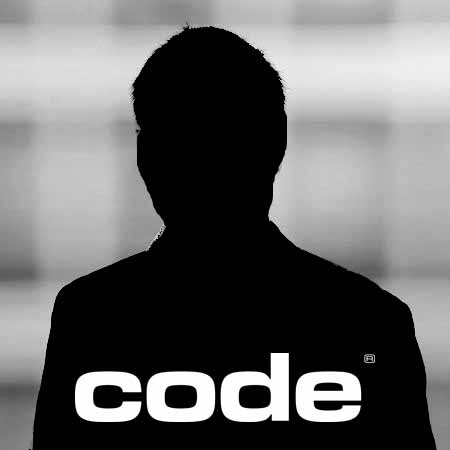Kaufen Ohne Aufwand & Langes Anstehen
Loosely translated from German, this acrostic for KOALA means “buy without hassle & long queues” and it’s precisely what this self-scanning smartphone app offers.
“That’s the main focus for us and customers,” explains Christoph Schönfelder, KOALA CEO. “KOALA offers digital shopping while still being at the physical store—the point-of-sale (POS).”
KOALA is part of a pack of self-checkout apps that found favor in the late 2010s because users could skip checkout lines by scanning and paying for items via smartphone. However, the 2020 coronavirus pandemic propelled the apps’ popularity as consumers sought contact- and line-free shopping. Catering to different retailers, most apps offer a mix of POS hardware fixtures (such as payment kiosks) and smartphone-based barcode scanning. And each app offers conveniences like integration into loyalty point programs, fraud detection/prevention, and coupon redemption.
However, Schönfelder notes, KOALA stands out for what it doesn’t offer.
“For KOALA, right now, we aim to set up with zero hardware,” he explains. “Everything must happen on the smartphone and other devices so that the setup is more economical.”
The other benefit of KOALA’s hardware-free approach?
“It minimizes time to market or the time from the first contact [with a retailer] to the initial prototype,” Schönfelder adds.

KOALA line-free shopping app puts shoppers in complete control.

Shop, scan, pay, and leave – Koala is a customer favorite.
KOALA Climbs Higher
Billed as the first full self-scanning solution, KOALA debuted in late 2019 at independently owned stores and select supermarket franchises.
“Until Germany’s first COVID-19 lockdown, we were pretty successful”, Schönfelder recalls. “We were busy setting up new stores in our region of metro Hamburg.
Then the 2020 pandemic dramatically altered retail. However, KOALA had just begun climbing beyond the low-hanging fruit of traditional retail (like grocery stores) to serve niche verticals. One of their first post-lockdown forays outside grocery stores was Europe’s endearingly eclectic Tchibo Coffee stores.
“The use case, in the end, is always the same,” Schönfelder rationalizes. “Customers take out products, scan barcodes, and pay via KOALA, where we manage all the different payment providers.”
Given KOALA’s mission to provide hassle-free shopping, particularly in stores with varying merchandise, any barcode scanning software the app uses must be superior.
KOALA Cracks the Code with CortexDecoder SDK
Early on, KOALA’s development team realized that an open-source or freeware barcode scanning module wouldn’t help the app provide hassle-free shopping. Scalable soft-scan licensing was also crucial. KOALA initially worked with a large firm having a well-regarded vision and computing platform; as KOALA’s developers worked with their barcode scanning technology, they realized its licensing wouldn’t fit their business model.
“Their scanning module is 100% powerful, but at the moment, I don’t believe it’s ready for scalability within retail,” Schönfelder summarizes.
KOALA discovered Code Corporation’s CortexDecoder software development kit (SDK), which claims to scan any barcode type on any surface. So Schönfelder’s group evaluated the SDK’s barcode scanning capabilities based on:
- Size – Could it read large barcodes on family-size packs and micro ones on snacks?
- Environment – How would overhead lighting affect scans?
- Optics – Would mirroring effects degrade scan accuracy?
- Integrity – Could it read damaged barcodes on common materials?
- Barcode – Types Could CortexDecoder process E Ink electronic barcodes?
- Quantity – Could it scan two barcodes on one box (like those on cosmetics)?
“[With CortexDecoder] the quality is good, the performance is perfect, and the pricing fits,” Schönfelder recalls.
CortexDecoder’s offline scanning capability was a bonus for KOALA while the app doesn’t need it now, offline scanning could add later. Offline scanning, Schönfelder believes, might benefit areas with weak cellular or Wi-Fi networks, such as transit hubs.
Ultimately, CortexDecoder’s consistent performance freed KOALA to focus on its strengths.
“We focus 100% on the mobile payment side, whereas our competitors have use cases out there with a physical self-checkout terminal,” he explains. “From our perspective, it [physical checkout] doesn’t save any time or effort when it comes to customer experience, so that’s why we set up everything around mobile payment.”
Cuddle up with KOALA
KOALA’s software-only approach has been gaining appeal among firms catering to time-strapped consumers or offering membership-based services. Rushed shoppers within Europe’s airports use KOALA to scan and purchase bargains before takeoff in Heinemann’s duty-free shops. In addition, KOALA is serving coworking spaces; users scan to pay for services like check-in and goods like printer usage. KOALA’s software-only model is also winning business in mobile snacking, e.g., smart fridges. Motorists are likely next to benefit from KOALA’s hygienic payment for gas and services.
Despite KOALA’s diversifying customer base, traditional retailers (like grocers) are enjoying greater profits thanks to the app.
“The average cart size within the KOALA app is 15-20% above the offline checkout. When we go out to the shops and check carts, they’re loaded,” Schönfelder beams.
Pandemic or not, it’s no secret that grocery shoppers want to be in and out of stores as quickly as possible. In fact, Schönfelder’s team observed KOALA users taking time-saving behaviors a step further.
“Customers set up their bags in the trolleys so they can pack everything up properly [as they scan] and just walk out,” he reports. “At the very end, it’s convenience.”
And convenience is why businesses will keep cuddling up with KOALA.
“It’s the full package,” Schönfelder says.
Interested in simplifying your operations with smartphone-based check-in or line-free shopping for your customers? Contact KOALA here info@koalaapp.de or here https://www.koalaapp.de/.
Ready to upgrade your app or software with enterprise-grade data capture?Contact Code.
Share This Post
Author

Paul Garcia
Many of the talented and qualified staff at Code Corporation contribute to our blog. Our team members add a unique perspective to our communications efforts, and we are fortunate to have such a great cadre of writers as part of our company.
